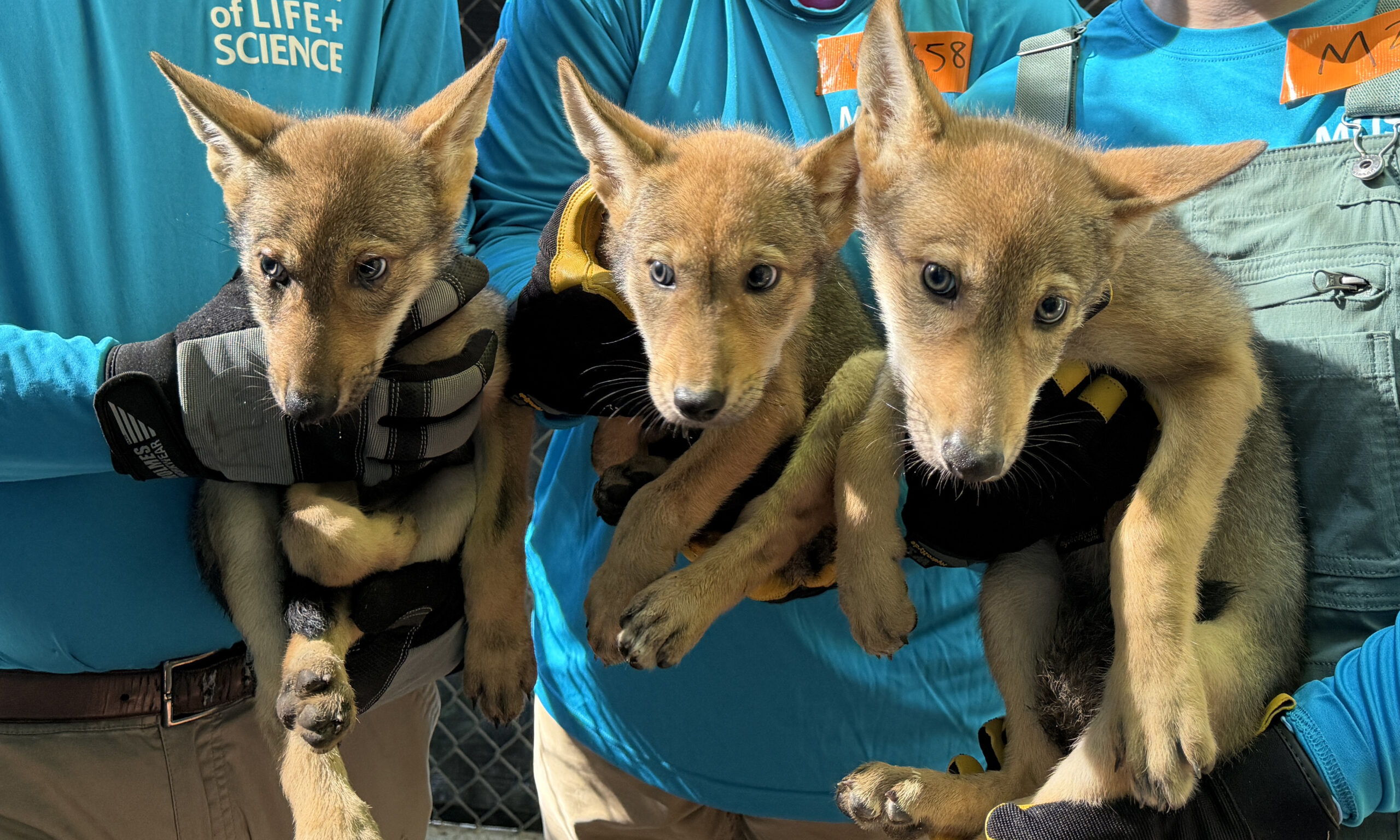
Explore the Wild: Red Wolves
Located in Explore the Wild, the Museum’s wolf habitat features two Red Wolves (Canis rufus), ambassadors for a critically endangered species that was once common in North Carolina. Ringed by a former rock quarry wall, the enclosure provides a naturalistic backdrop and vertical climbing challenge. A pool with a waterfall pool and wolf den create places where the wolves can cool off and retreat.
Be a part of their story!

Our Red Wolf pups need names, and we want YOU to name them!
Purchase a raffle ticket for your chance to name one of the three Red Wolf pups from this year’s litter. Three winners will be selected at random. Each winner will have the opportunity to name one of the Red Wolf pups.
Your participation will help us give our new arrivals the perfect names while also directly contributing to their day-to-day care and supporting the next generation of Red Wolves at the Museum. This contest is open until Wednesday, July 15 at noon EDT.
Raffle info
- 1 ticket for $30
- 5 tickets for $140
- 10 tickets for $270
All names are subject to the discretion of the Museum of Life and Science and will be vetted for discriminatory or problematic references.
Meet Our Wolves

Oka

Martha
Caring for Red Wolves
The Museum’s wolves eat a special variety of canine chow as well as whole prey items that are scattered throughout the habitat. This encourages our wolves to use their sense of smell and natural hunting instincts. Behavioral enrichment enhances the quality of animal care by providing environmental stimuli that allows animals to express natural behaviors. For our wolves, this might mean adding bedding from other animal habitats for a new scent experience, or introducing animal antlers for chewing.

Red Wolf Conservation
Red Wolves were once common in North Carolina, but now fewer than 500 individuals survive. This Museum is part of a nationwide program of zoos and nature centers working to rebuild the species. Since 1993, 23 Red Wolf pups have been born here. Each pup adds to the genetic diversity of the species.
Why do Red Wolves need our help?
Red Wolves were once a top predator throughout the southeastern United States. As humans claimed more land for farms and towns, they saw wolves as a threat and drove them out. The Red Wolf is now critically endangered; North Carolina is the only place on earth they can be found in the wild.
Scientists, government workers, and citizen advocates are working together to bring wolves back. A small wild population lives at North Carolina’s Alligator River National Wildlife Refuge. Others live in zoos and nature centers around the country. Human activity caused the Red Wolves to become endangered, but humans help can rebuild their population.

